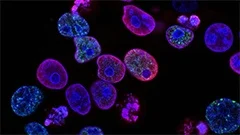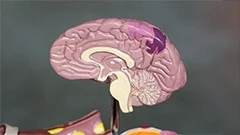Introduction
Energy metabolism, a fundamental aspect of cellular biology, encompasses the processes by which organisms convert energy from nutrients into adenosine triphosphate (ATP) and other forms of chemical energy. This stored energy is then utilized to fuel various cellular activities such as biosynthesis, active transport, and motility. In this comprehensive course, we will delve deep into the intricacies of energy metabolism, exploring its importance, key pathways, regulation, and implications in disease states.
Importance of Energy Metabolism
Understanding energy metabolism is pivotal for comprehending the fundamental aspects of life, as it provides the driving force for all cellular functions. An impairment in these processes can lead to a multitude of diseases such as diabetes, obesity, cancer, and neurological disorders.
Overview of Energy Metabolism Pathways
Glycolysis
Glycolysis, or sugar catabolism, is the first step in the metabolism of glucose and other hexoses. This anaerobic process occurs in the cytoplasm and can generate a net yield of two ATP molecules per molecule of glucose.
Steps of Glycolysis
Glycolysis consists of ten enzyme-catalyzed reactions, culminating in the formation of pyruvate from glucose-6-phosphate. The process can be divided into two main stages: (1) preparation and (2) breakdown of the six-carbon sugar.
Citric Acid Cycle (TCA Cycle or Krebs Cycle)
The citric acid cycle, also known as the tricarboxylic acid (TCA) cycle or Krebs cycle, is a key metabolic pathway that converts acetyl-CoA into CO2 and provides reducing equivalents in the form of NADH and FADH2. This cycle occurs within the mitochondrial matrix and is closely integrated with oxidative phosphorylation.
Steps of the Citric Acid Cycle
The citric acid cycle consists of a series of enzymatic reactions that cyclically convert acetyl-CoA into CO2, along with the generation of high-energy electrons and carbon dioxide. The cycle can be broken down into three main stages: (1) entry, (2) oxidation, and (3) regeneration.
Oxidative Phosphorylation
Oxidative phosphorylation is the process by which energy-rich electrons are transferred through a series of protein complexes within the inner mitochondrial membrane to ultimately drive ATP synthesis. This process is coupled with the oxidation of pyruvate, acetyl-CoA, and NADH generated during glycolysis and the citric acid cycle.
Electron Transport Chain (ETC)
The electron transport chain is a complex network of protein complexes that facilitate the transfer of electrons from high-energy donors to low-energy acceptors. This transfer is coupled with the pumping of protons across the inner mitochondrial membrane, creating an electrochemical gradient that drives ATP synthesis.
Biosynthetic Pathways
Biosynthetic pathways are responsible for the production of cellular components such as nucleotides, amino acids, lipids, and carbohydrates. These processes require energy in the form of ATP and utilize precursor molecules derived from catabolic pathways or obtained from the extracellular environment.
Gluconeogenesis
Gluconeogenesis is a biosynthetic pathway responsible for the production of glucose from non-carbohydrate precursors such as lactate, pyruvate, and certain amino acids. This process primarily occurs in the liver and kidneys and serves to maintain blood glucose levels under fasting conditions or during periods of increased demand.
Regulation of Energy Metabolism
The regulation of energy metabolism is a complex process that involves multiple feedback mechanisms, hormonal control, and allosteric enzyme interactions. These regulatory elements work together to ensure a balanced supply and utilization of energy within the cell.
Feedback Inhibition
Feedback inhibition is a common regulatory mechanism in which the end product of a metabolic pathway negatively modulates an enzyme upstream in the same pathway. This mechanism helps to prevent oversaturation and maintain homeostasis within the cell.
Allosteric Enzyme Interactions
Allosteric enzymes are proteins that undergo conformational changes upon binding of a ligand, which can either enhance or inhibit enzymatic activity. These interactions play crucial roles in regulating energy metabolism by modulating the availability of key metabolites and cofactors within the cell.
Energy Metabolism in Disease States
Dysregulation of energy metabolism is a hallmark feature of numerous diseases, including diabetes, obesity, cancer, and neurological disorders. Understanding these processes can provide valuable insights into disease pathogenesis and potentially lead to the development of novel therapeutic strategies.
Diabetes and Obesity
Impaired insulin signaling and altered energy homeostasis are key factors in the development of diabetes and obesity. An understanding of energy metabolism can help elucidate the mechanisms underlying these diseases and guide the development of more effective treatments.
Cancer Metabolism
Cancer cells often exhibit altered energy metabolism, with an increased reliance on glycolysis and aerobic glycolysis (the Warburg effect). These changes provide cancer cells with a competitive advantage in terms of proliferation and survival under adverse conditions.
Neurological Disorders
Neurological disorders such as Alzheimer's disease, Parkinson's disease, and epilepsy are associated with dysregulation of energy metabolism within the central nervous system. Understanding these processes can help to develop targeted therapies for these debilitating conditions.
MCQ: Test your knowledge!
Do you think you know everything about this course? Don't fall into the traps, train with MCQs! eBiologie has hundreds of questions to help you master this subject.
These courses might interest you
Create a free account to receive courses, MCQs, and advice to succeed in your studies!
eBiologie offers several eBooks containing MCQ series (5 booklets available free for each subscriber).




